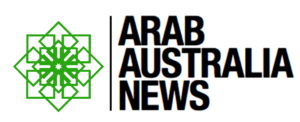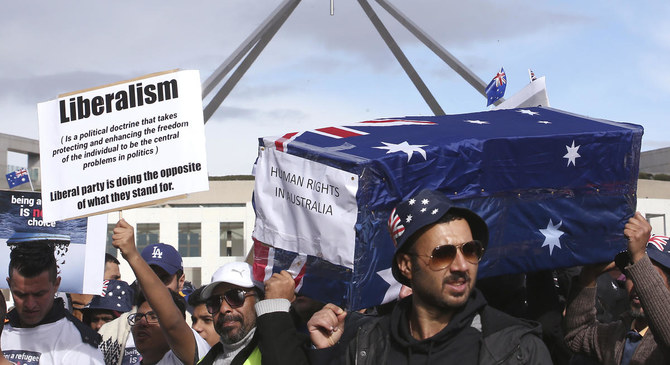Hundreds of protesters from Iraq, Iran, Sri Lanka, Sudan, Somalia and including some Rohingya Muslims from Myanmar rallied outside Australia’s Parliament House in Canberra last Monday (July 29), saying that they wanted to highlight the uncertain futures of many refugees ever since the Australian government replaced permanent protection visas with temporary visas.
Temporary visas were introduced when the conservative LNP government was first elected in 2013 as a way of deterring asylum seekers who come to Australia by boat. Those arriving by boat since 2013 have been banished to immigration camps in the poor Pacific island nations of Papua New Guinea and Nauru, where hundreds still languish. The United States has agreed to resettle up to 1,250 of these refugees. The Australian government now says that 585 refugees had since found new homes in the United States under that agreement.
Most of the protesters were in Australia on three or five year visas. Visas that are only available to refugees who agree to live outside the major cities. However, those refugees lose their visas if they choose to return to their homelands to visit family.
“The circumstances of the temporary visas are onerous as well as a bureaucratic nightmare,” Refugee Action Coalition spokesman Ian Rintoul said. “People are effectively in limbo in that they are indefinitely separated from partners and from children as well as brothers and sisters.”
Only refugees who do not arrive by boat are entitled to permanent protection visas. Some asylum seekers who arrived by boat as far back as 2012 were only allowed to apply for refugee visas last year, according to Rintol. After their visas expired, some were not renewed in circumstances where the Australian government had decided that conditions the refugees originally fled from, in their homelands, had improved. Those refugees who were refused visa extensions included Sri Lankans and some Iraqis, Rintoul said.
Most of the 1,000 protesters had traveled 650 kilometers (400 miles) from Melbourne to demonstrate. Chanting “eight years is too long” and “justice for refugees,” they carried a mock coffin draped in an Australian flag that they said represented the current state of human rights in Australia.
Prime Minister Scott Morrison declined to meet a delegation of protesters led by Iraqi Council Melbourne president Samir Kafaji in Parliament House. But two lawmakers from the opposition Labour Party, which opposes temporary visas, met with and agreed to speak to the delegates.









